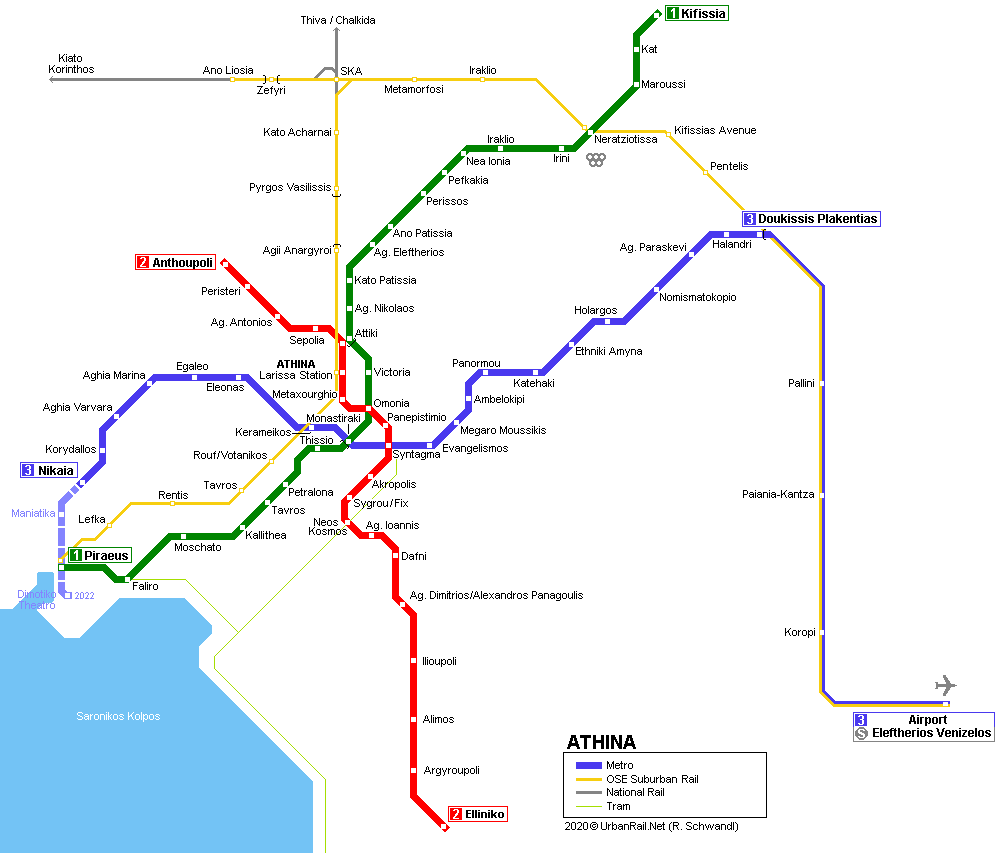Economic Data.
Physical Infrastructure.

Observations
The unemployment rate is one of the lowest since the Greek financial crisis in the early 2010s. The unemployment peak was in September 2013 – at 27.8% (World Development Indicators, n.d.). Thus, the economy is gradually recovering and showing modest growth. Nevertheless, against the background of other European countries, the unemployment rate in Greece is relatively high. On average, in 2020, 6.3% of the working-age population remained unemployed in the states of the European Union (World Development Indicators, n.d.).
The Euro is one of the most popular currencies globally and the second most crucial reserve currency after the US dollar. However, in 2015 Greece was on the brink of a default, which was avoided thanks to financial aid packages from the EU. The Greek economy is slowly reviving, and a low start makes growth more manageable. The experience of other countries shows that it is possible to get out of such a situation with dignity. Lampropoulou (2017) asserts that in 2011 Portugal received almost 80 billion euros under the same scheme as Greece, and until 2014 it was decisively cutting costs. At the end of the program, it abandoned austerity, managed to accelerate economic growth to a record in two decades, and returned public sector wages and pensions to pre-crisis levels.
According to the OECD Economic Surveys (2020), the Greek economy faces two essential risks in a pandemic: the emergence of a large number of bankruptcies of non-viable companies and the abolition of many jobs, mainly in intermediary services and in industries where low-skilled labor is used. First, the possibility of default of a large number of companies is associated with significant credit risks, including new delinquent loans. Second, there are financial risks, including the repayment of government guarantees, the final cancellation of debts to the state, and support for the income of affected firms, which will harm the monetary sphere and slow down the return to fiscal balance.
Since ancient times, Greece has been a strategic transport hub that connects three continents – Europe, Asia, and Africa. OECD Economic Surveys (2020) notes that Greece is an attractive source for investment in the transport trade and maritime industry, as cargo flows are constantly increasing every year. Major transport hubs can be transformed into regional logistics centers to transport goods from Asia to the EU.
References
Airports in Greece.(n.d.). FlightConnections. Web.
ATHINA. (n.d.) UrbanRail.Net. Web.
Euro Exchange Rate – EUR/USD – Greece. (n.d.). TRADING ECONOMICS. Web.
Global Rankings 2018. (2018). The World Bank Group. Web.
Greece. (n.d.) Central Intelligence Agency. Web.
Greece Bank Lending Rate. (n.d.). TRADING ECONOMICS. Web.
Greece: Port Index. (n.d.). World Port Source. Web.
Lampropoulou, M. (2017). Administrative reforms and the Eurozone crisis: A comparative study of Greece and Portugal. PEOPLE: International Journal of Social Sciences, 3(2), 336-361. Web.
Network Coverage Maps. (n.d.). GSM Association. Web.
OECD Economic Surveys. (2020). Greece: Overview [PDF document]. Web.
World Development Indicators. (n.d.). The World Bank Group. Web.